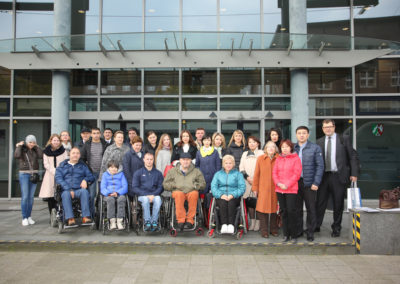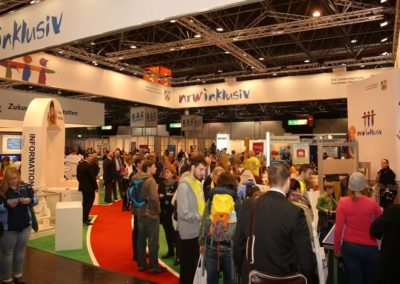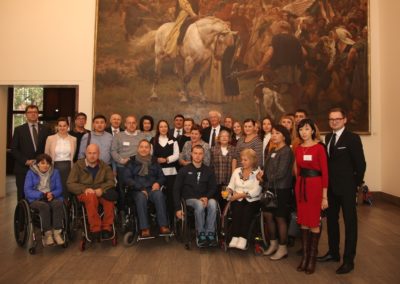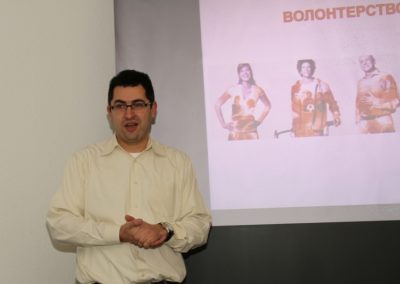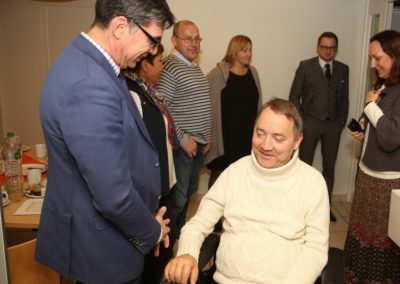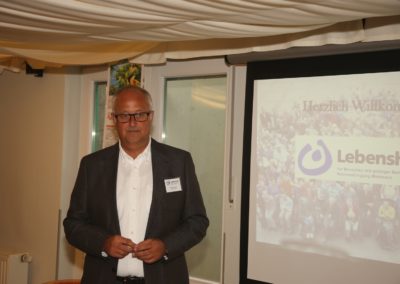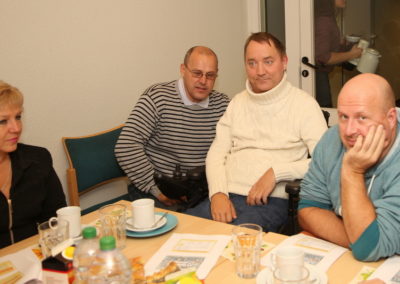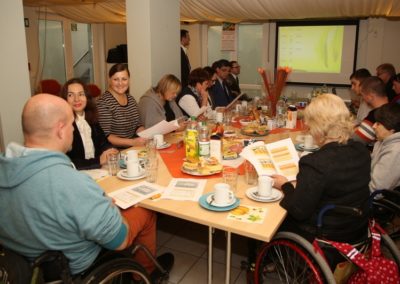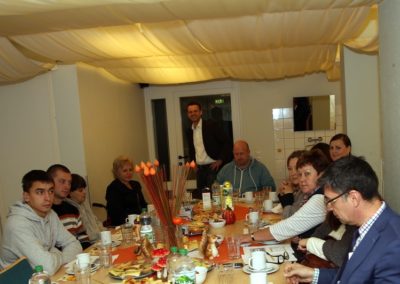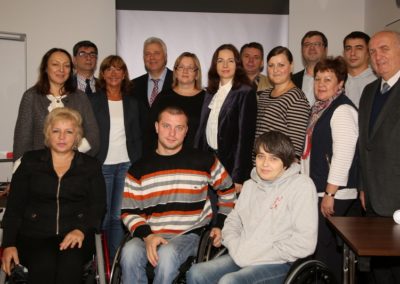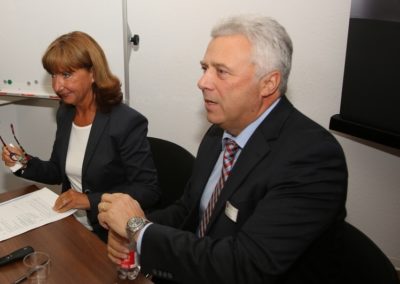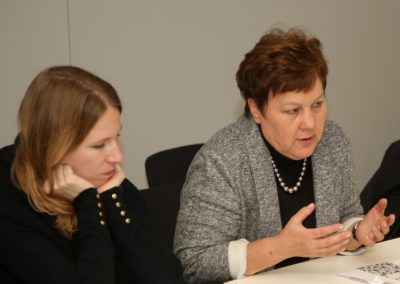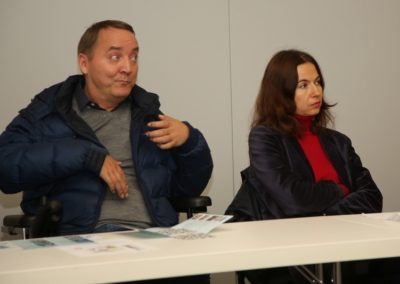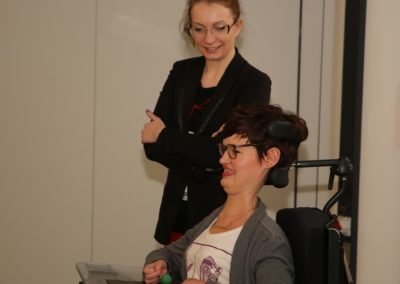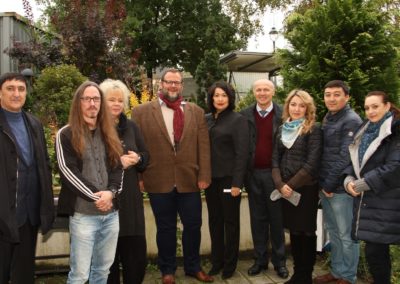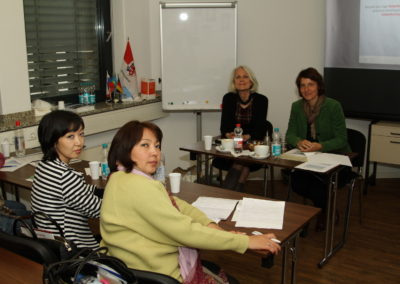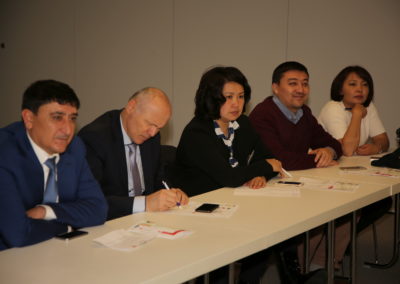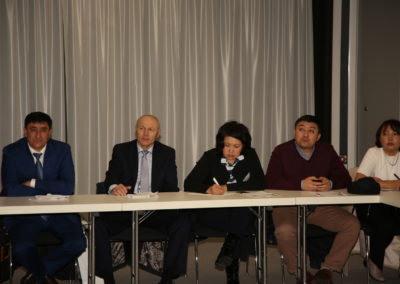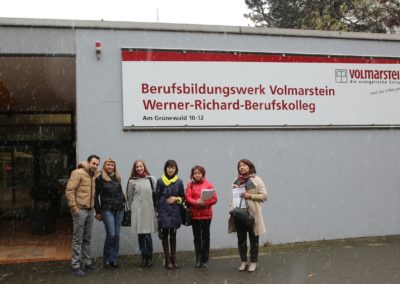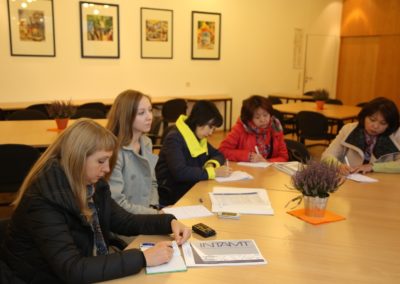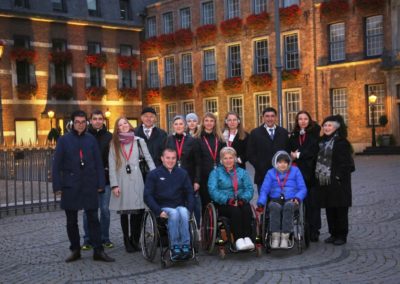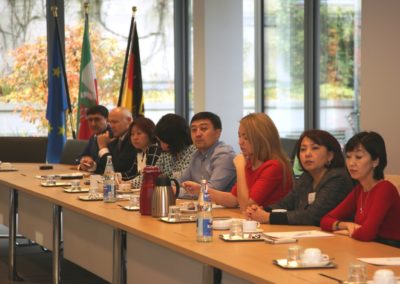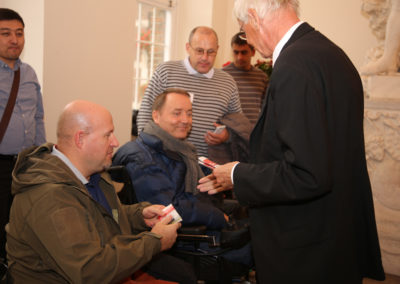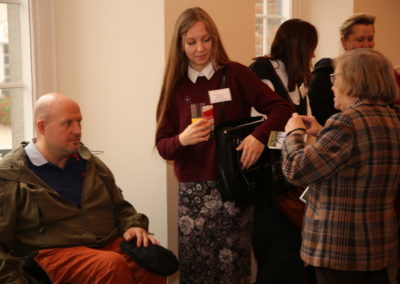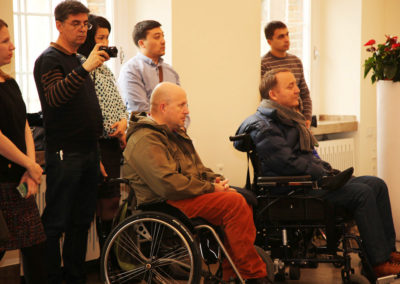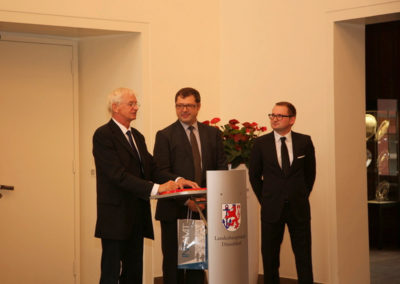
Within the framework of the project to develop cooperation with civil society in the Eastern Partnership countries, supported by the Federal Foreign Office of the Federal Republic of Germany, the INTAMT Academy organised a meeting of leaders and representatives of self-help organisations for people with disabilities from Belarus, Russia, Germany and Ukraine from 12 to 17 October 2015. The theme of the meeting was the role and significance of self-help organisations for people with disabilities in ensuring their full social integration. The project was also supported by the City of Düsseldorf, the Düsseldorf Association of German-Russian Friendship and Dr Angelika Mintrop-Aengevelt.
Basic objectives of the meeting:
– To get to know the situation of people with disabilities in Germany and the main directions that promote their social integration.
– To exchange experiences regarding the activities of self-help organisations for people with disabilities and to ensure their full social integration.
In the course of the events held, their participants have gained an overview of:
– social policy and the system of social security and social integration of people with disabilities,
– the experiences of the development and realisation of the action plan of the North Rhine-Westphalian state government “A Society for All – NRW Inclusive” in accordance with the UN Convention on the Rights of Persons with Disabilities,
– the design of a barrier-free environment, the guarantee of mobility for people with disabilities in Düsseldorf and the cooperation of self-help organisations with the municipal administration during project realisation,
– the Federal Volunteer Service, especially with regard to the promotion and support of persons with disabilities and voluntary commitment,
– the federal programme for the promotion of self-help initiatives for people with disabilities and voluntary commitment,
– the living conditions of people with disabilities in residential homes and outpatient care facilities managed by self-help organisations
– the practical day-to-day work of self-help organisations for people with disabilities in Germany,
– the latest products for everyday use, technical equipment for care and therapy of the sick, wheelchairs and means of transport for people with disabilities, which were exhibited at the international trade fair “REHACARE International 2015”.
In the course of the conducted series of seminars, the participants exchanged their experiences from the activities of self-help organisations for people with disabilities in Belarus, Russia, Germany and Ukraine. They also discussed the prospects of developing international cooperation in the field of inclusive education, increasing the employment rate of persons with disabilities and intensifying the participation of persons with disabilities in public life.
Of particular importance was the reception of the project participants in the Düsseldorf City Hall, where the Mayor Günter Karen-Jungen reported on the activities of the city administration with regard to ensuring the full integration of persons with disabilities. “Enabling people with one or more disabilities to participate in school, professional, social, political and economic life is, on the one hand, a task that the UN makes binding, and on the other hand, this should be a humanitarian matter of course in a modern society,” said the mayor during the meeting. Karen-Jungen, who holds a degree in social work, emphasised that the exchange of experiences on approaches or problems across borders could help everyone move forward.
Furthermore, the Mayor of Düsseldorf underlined the importance of the delegation’s visit to the “REHACARE International 2015”: “REHACARE offers an excellent opportunity for knowledge transfer.” That is why he said it was particularly pleasing that visitors from the CIS states had travelled to take advantage of this opportunity for information and discussion.
Managing Board Member of the INTAMT Academy of Management and Technology Yuri Nikitin believes that the dialogue with the state capital Düsseldorf will have a lasting effect: “For years, we have been supported by the capital of North Rhine-Westphalia in many projects, especially on the topic of inclusion.” The progress on both sides – in Germany as well as in the CIS states – shows all the more how important it is to learn from each other, Nikitin continues. After all, it could be possible to overcome political discrepancies thanks to a joint project.
The results of the meeting finally culminated in a declaration in which the most important points were recorded:
1) The meeting allowed participants to learn about the conceptual basis, organisational principles and best practice examples of social inclusion of people with disabilities in Germany.
The seminars with representatives of self-help organisations for persons with disabilities have broadened the understanding of their role and function in ensuring the full social inclusion of persons with disabilities.
3) In the course of the seminars, workshops and discussions, a number of concrete proposals for joint international projects were formulated, which will be elaborated in detail by the project participants in the near future.
The meeting was characterised by a friendly atmosphere and played an important role in the development of mutual understanding and cooperation between representatives of civil society in Belarus, Russia, Germany and Ukraine.
The international meeting of representatives of self-help organisations for people with disabilities took place at a high organisational level.
The participants of the meeting decided:
1. it is recommended to hold international meetings for representatives of self-help organisations for people with disabilities on a regular basis.
2. to establish an international working group of representatives of self-help organisations for people with disabilities for the coordination of their activities, for the conception and realisation of joint projects.
3. requests for organisational and financial support for joint international projects of self-help organisations for people with disabilities should be addressed to government decision-makers in the countries of the project participants.

